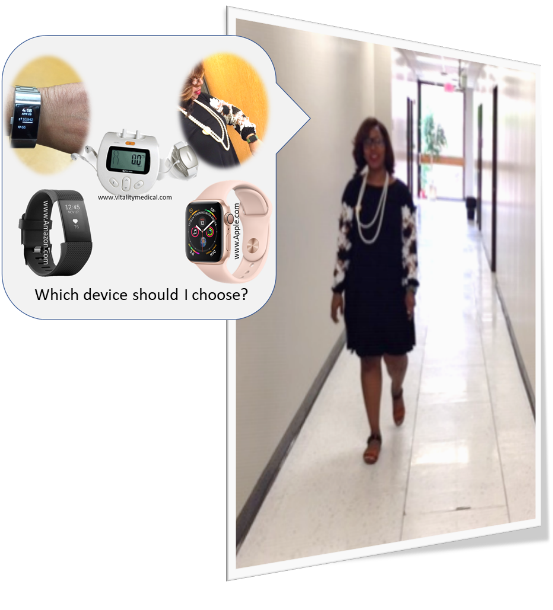
We see people walking around with the wearable devices everyday without regard to whether they really make a difference with metabolic parameters. These devices all have the capability of prompting wearers to take steps, stand up when sitting, but they can also alert wearer to slow breathing. A poster presented at Experimental Biology in Orlando by Evan D. Jette, a student from the Usselman’s lab at McGill University in Montreal, QC, Canada made the argument these wearable devices can potentially lower blood pressure (BP). I was interested in whether there was more research surrounding these wearable devices, especially Fitbit and Apple because I noticed they were prevalent among conference goers.
Evan’s research suggested there was a trend with blood pressure among clinical populations (high BP or T2DM) indicating that slower breathing (~15 breaths per min) can potentially have a positive impact on diastolic BP. He further indicated that the Fitbit may have been optimal in lowering BP via respiratory rate due to the ability of the Fitbit to customize breathing to the wearer rather than generating a standardized rate for all subjects. These data leave me to wonder, since the RESPeRATE is marketed to lower blood pressure by controlling breathing, and most people own wearable devices such as commercially available Fitbits or Apple Watches, would these devices really assist in BP modulation?
There is a significant amount of literature surrounding the heart rate capability of the wearable devices, but negligible data referencing changes in blood pressure. The exception is RESPeRATE taking the stand that their product is “clinically proven to lower blood pressure”. In the study by Jette, participants that undergo low to moderate exercise exhibited no significant difference in heart rate with either the Fitbit or the Apple Watch. However, under extreme conditions such as high impact training, accuracy was reduced across both devices. The Fitbit provided heart rates that were equivalent to the Polar monitor (a heart rate monitor strapped to the subject’s chest). I wonder under these experimental conditions will RESPeRATE have similar outcomes.
Nevertheless, I did not find any data that supporting these wearable devices playing a role in reduced BP. I think the Usselman’s group is on to something with exploring the use of these wearable devices to modulate BP. However, a healthy lifestyle that incorporate the AHA Life’s Simple 7 will assist in blood pressure reduction. So, keep wearing your fitness devices to maintain an enhanced level of motivation and stay connected to a community of people that will support your BP reduction goal.